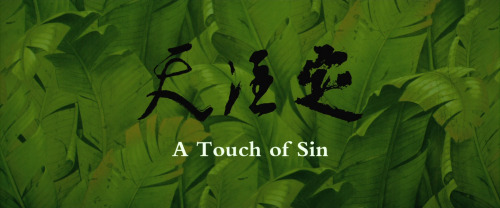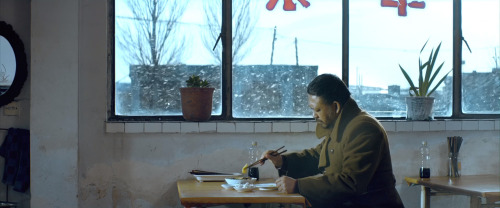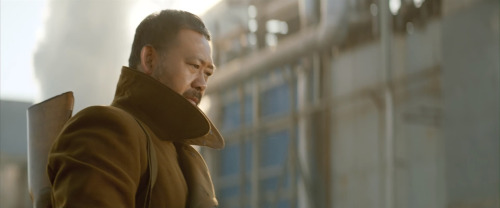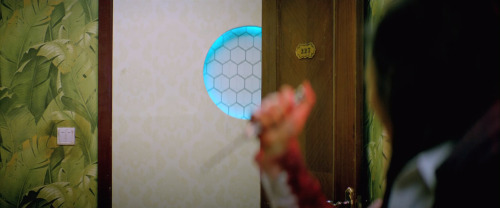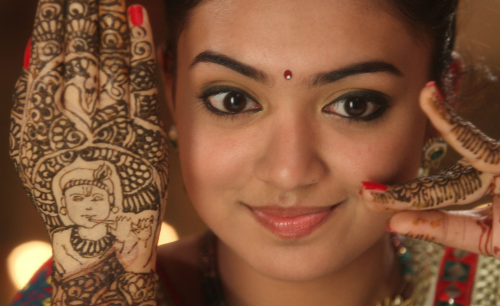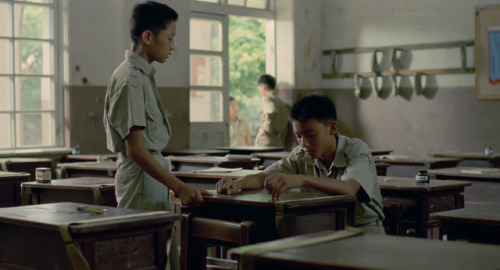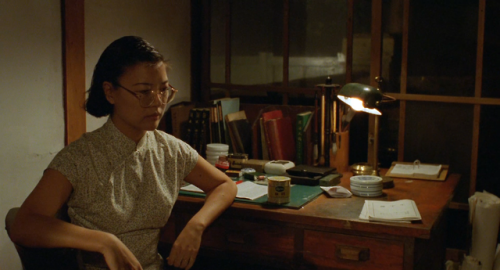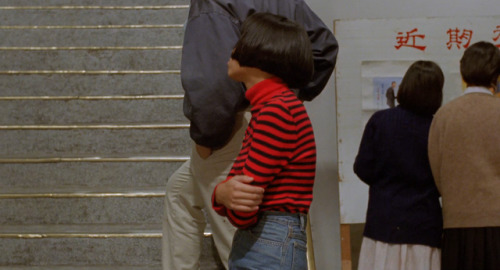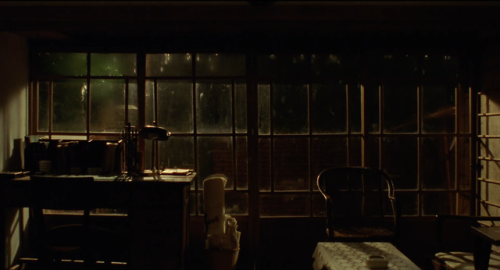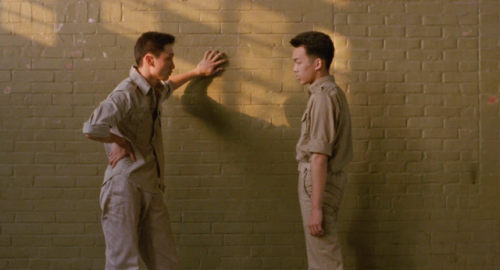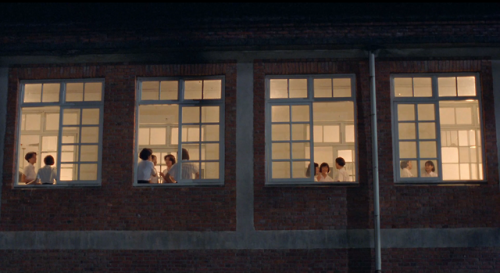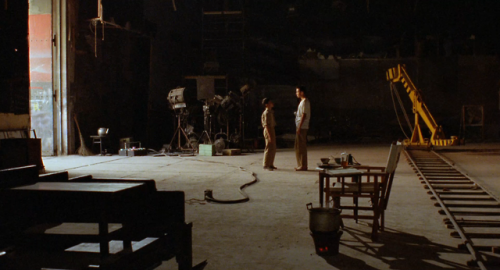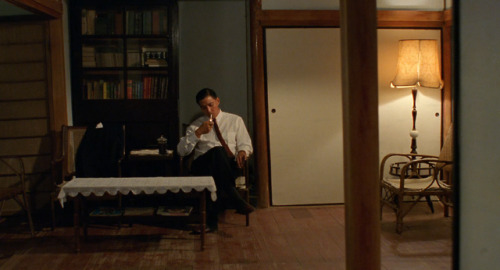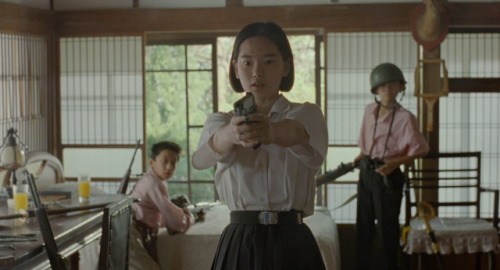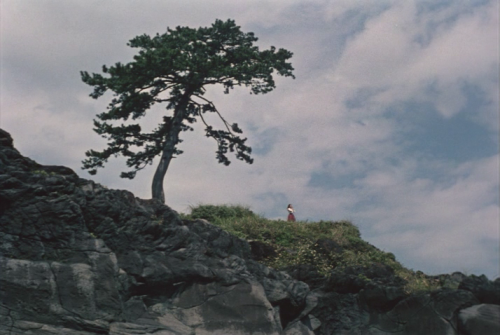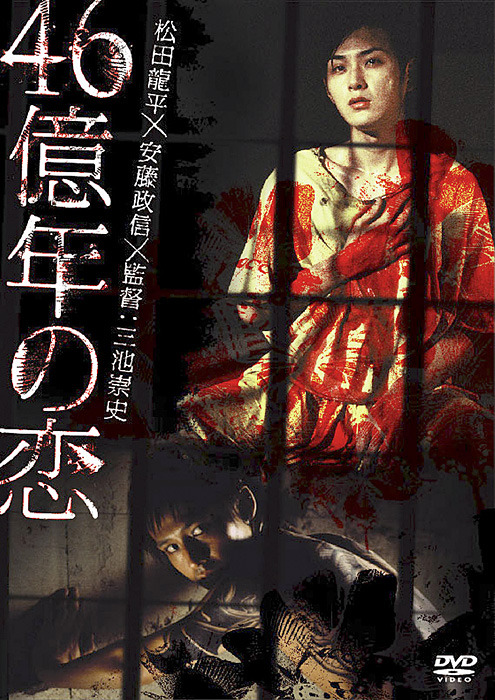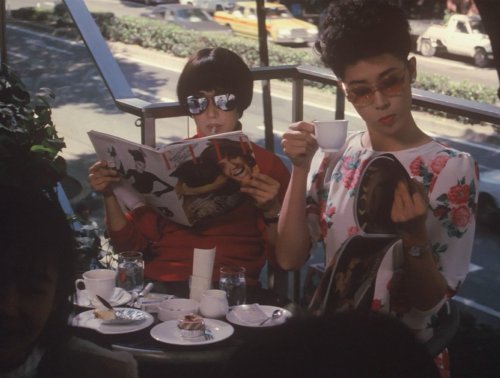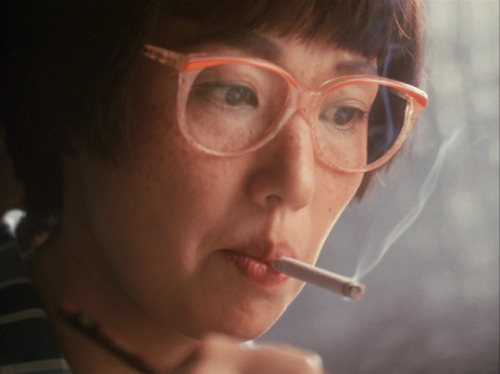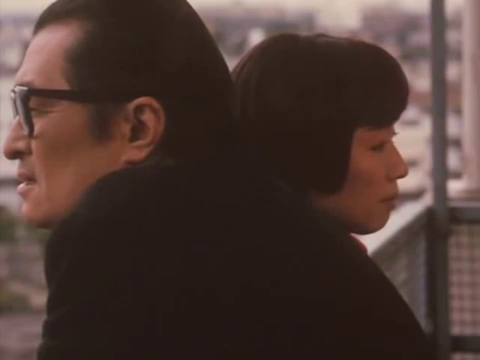#asian film
An interview with Jacqueline Lin
Footage of an asian girl’s eyes slowly engorging plays alongside a female narrator explaining and defending her desire to undergo Blepharoplasty (eye surgery). The narrator is matter of fact about the issues surrounding having Epicanthic fold eyelids, and explains with a clarity the logic behind her desire. It’s the only voice of the 5 in Record Recreate which isn’t drenched in apology or self-deprecation. But even that voice, like the others, recognizes a distance between self-perception and the body. Girls talk about their physical features and future selves with the same kind of language of desire one might use to talk about wanting an upgraded version of your old iPhone. An attitude of being able to pick, choose and upgrade, to question the quality of characteristics about yourself and be open to the pursuit of something, if not better, then different. This attitude towards identity reappears frequently in Jacqueline Lin’s work. Everywhere from the sacrosanct image of the buddha dissolving into cut-up pieces of itself in Machina Buddha, to the ‘Choose your own adventure’ style of Oriental Battle, to the changing traditional Chinese Opera makeup masks in Bian Lian. Identity, costume and desire are intertwined, with the body as the ultimate canvas for a fluid social negotiation of the self. The subject of Lin’s videos demand us to ask questions about ideals and quest for self-satisfaction, as well as provoking us to stop and consider where the logic of these superficial pursuits originate. We decided to turn the camera around, and ask these questions of the lady behind the lens.
What is your background and how has it influenced the way you see the world?
I spent my childhood growing up in Jeddah and Cairo, and then moved to Taiwan in 8th grade and went to high school there. Living in these different countries made it a little difficult for me to really find my own identity. I never thought I could completely relate to my friends from the Middle East because of social and lingual barriers, and when I went back to Taiwan I found that I didn’t truly understand the Taiwanese culture either because I attended an International school where we were taught in English, and influenced by Western culture. However, I never thought about this as something negative and I feel so blessed to have been able to learn from the Islamic, Chinese and Western culture. I think of myself as a mix of all these influences that have turned me into who I am today. Having experienced ethnically being in both the minority and the majority, I feel more culturally aware and appreciative of everyone’s views.
Though you work in a variety of mediums, video seems to be your go-to. What was your first experience with video? What do you feel is the future potential of the moving image?
I used to create short movies and ask my sisters to act for me - the movies were really silly though! I was around 12 when I directed my first video about this ballerina who hates going to ballet class and accidentally knocks over her teacher while pirouetting…seemed funny at the time! But what hooked me in was being able to immediately cut and edit within video camcorder – I would storyboard my shots to make sure I knew what to film first and last, and plan when to cut into close-ups of the characters or their actions. Nowadays video comes in all forms and is so easily accessible. I am always recording videos on my phone of things I come across that I find visually captivating – whether it’s the people, the shadows cast on walls, or the patterns created by reflections. I think that moving images don’t have to always be viewed on a screen, and I am more interested in video in other forms such as projected onto surfaces, or how video can change environments that we live in.
One of the primary focuses in your work is the character of an asian girl. Is there something specific you are trying to communicate? What kind of a portrait are you trying to paint?
I find myself returning back to this character of an Asian girl all the time because I draw my inspiration from my experiences of being one. I am constantly thinking about the social norms of being an Asian female specifically and how often they become categorized as one idea when really, each Asian female has her own identity that is completely unique. There are many assumptions about Asian females because of popular media that has given a lot of Westerners certain ideas about us. I am both poking fun at these categorizations because I completely disagree with them, and am exploring ways in which Asian girls identify themselves.
Outside of the asian girl, I also feel like you are constructing an entire body of work based off of a language of personal symbolism- hair buns, masks, nostalgic Chinese music… what do these ideas mean to you when you incorporated them into your works?
The symbolism comes from my curiosity to know more about Asian practices - the traditional Chinese performances or instruments like the Gu-Zheng and learn more about them because I myself am not entirely familiar with it. And honestly, the symbolism I incorporate in my works come from what I am obsessed with at the time of making those projects. For instance, the hair buns came from seeing some friends at RISD do their hair up that way – and I loved the way they looked so decided to create a character inspired by them!
You are now a senior in college, what was the worst moment in your college experience and how did you overcome it? What was your best experience?
If I had to pick out something I didn’t enjoy these past three years it would probably be times when I am assigned a project to work on and can’t generate any ideas for it. I dislike jumping into an idea that I am not happy about and creating something I don’t feel is very me. Sometimes it doesn’t work out and I am not proud of my work, and sometimes it surprises me because a project might take on a different direction and turn out great! My best experience is being able to work with others, collaborating with them, and asking them to be part of my projects. In art school, I am constantly surrounded by people I can share my work with and in turn see their work too. We are always giving each other feedback and sharing our love for art, and that is what I am truly enjoying the most about being here.
An interview with Taiwanese-American video artist, Jacqueline Lin, by Vivian Loh and Jessia Ma.






Chiaki Kuriyama in Battle Royale (2000)


kokoro go sakebitagatterunda
I picked up “Big Bang Love, Juvenile A” (2006) two disc set directed by Takashi Miike the other day. It’s been the first movie to really move me in a while. Frequently saying inside my head, “holy shit” and “this is so fucked up” but that’s not due to anything overtly explicit or graphic in the film, Miike is just a master of suggestion. All it takes is the proper context and a shot of a running shower head to take you out of your comfort zone. Expect a lot of that plus so much more from this one; a film about two prisoners who either coincidentally or by destiny are locked up on the same day for the same crime. As their mysterious backgrounds unfold, so does a classic game of clue when a murder causes an eruption of instability to arise before a small cast. This movie is Miike to the core.
The film uses some very surreal imagery, not unlike something out of The Cabinet of Dr Caligary. Desolate, blood red backgrounds and an intense, almost tribal dance scene starts the movie off for us. Later on, ancient pyramids churn your imagination as the plot cuts to and from different points in time; it even repeats scenes under changing context and that can be disorienting if you aren’t paying attention. The set pieces are very well done with shots in claustrophobic hallways, dimly lit prison cells, and a super creepy and ambiguous ‘laundry room’. Also, the use of green screen enhance the bizarre and ever-moody nature of Big Bang Love. Couple all of this with the eerie, industrial-style soundtrack and you get a very cool presentation.
Thematically rich, one of the more easily definable issues dealt with is homosexuality and same-sex romance. There are no sex scenes per se; it’s all somewhat subtle. I felt it added so much to the tension and made for a really unique story. The use of the 'butterfly effect’ concept grants a lot of possibilities in the reasoning behind each character’s actions. It forces you to connect the dots while leaving enough room to second guess yourself. It also deals with themes of destiny, fate, existentialism, and violence. This is definitely a Miike movie and it’s one that does not hold your hand for a second. Nothing is certain, everything is up for speculation… which is my main warning to casual movie watchers: have your thinking cap ready.
The two disc set from AnimEigo comes with everything you’d expect on the actual movie disc as well as an almost 'criterionic’ second disc with special features. There’s about an hour and a half of behinds the scenes footage and an interview with Takashi Miike, plus an essay from Tom Mes who wrote two books on Miike: “Agitator” and “Re-Agitator.” Also on there are production notes and trailers. Definitely recommend finding this version of the dvd.
Tense and moody, keeping it’s feet on the ground but also so dreamlike that it might be on an entirely different planet. However, there are some brief but well done fight scenes to snap you back to the real world. Big Bang Love is lot to chew on for a run time merely 83 minutes long. It moves at a perfect pace allowing it to be cerebral but not to the point of frustration or boredom. It’s disturbing but not graphic, bloody but not gory, dramatic but not sappy… It’s surreal and yet you can relate. The film demands sympathy and is on it’s knees, begging for understanding. Although if you don’t give it a certain amount of attention it will move on without you with disregard for the fact that you’re confused. With a little consideration you will undoubtedly find a tragic love story in the thick of a murder mystery, trapping you in it’s dark, atmospheric corridors. Lots of subplot here too; good for multiple viewings. Also, I forgot to mention there is a J-horror style ghost that appears once or twice in the film. Awesome. Can’t say enough good things about Big Bang Love, Juvenile A!
Post link
Lunana: A Yak in the Classroom
Only the second movie submitted for Oscar consideration by the small landlocked Asian nation of Bhutan (the first was Khyentse Norbu’s “The Cup” in 1999), “Lunana” emerged as a surprise contender for Best International Feature Film when Oscar nominations were announced earlier this week. Itself a story of underdog triumph more astounding than anything “Lunana” puts forth in its tranquil 110 minutes, this awards recognition shines a welcome spotlight on both Bhutan and its philosophy of “gross national happiness,” which informs the film’s narrative.
SUBLIME CINEMA #603 - A TAXING WOMAN
Director Juzo Itami’s cause of death is still under dispute - there were rumors that he was murdered by the Yakuza, though nothing was ever confirmed, and nobody was ever charged.
He directed some of Japan’s best comedies, and Nobuko Miyamoto featured in many of them.
Post link

